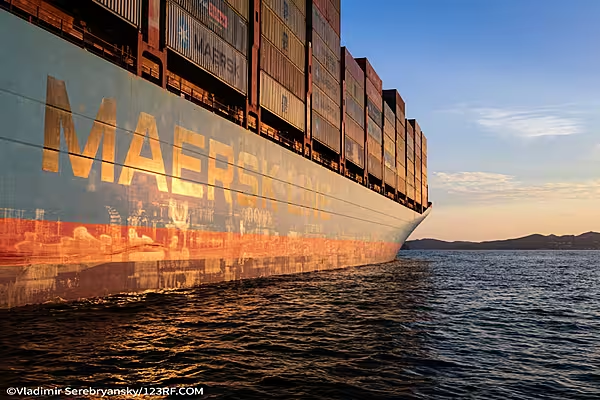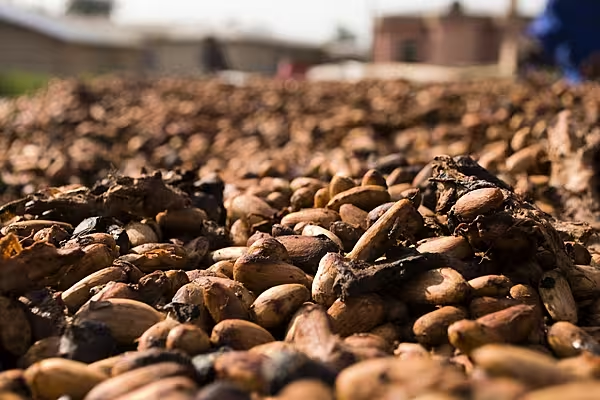Shipping group Maersk expects global container demand to fall this year as sales of durable goods come to a 'standstill', leaving flat-screen TVs and furniture piling up in warehouses, the company said on Wednesday.
A surge in consumer demand and pandemic-related logjams holding up containers in key ports had boosted freight rates and profits in the shipping industry in recent quarters, yet the cost of living crisis has reversed that trend.
Maersk, one of the world's biggest container shippers with a market share of around 17%, said inflation and a worsening economic situation had dented consumer demand, which could lead to a normalization of the global shipping market towards the end of the year.
"Sales of durable consumer goods have come to a standstill," Soren Skou, chief executive told journalists at the company's headquarter in Copenhagen. "Consumers have bought what they need for now of new sofas, kitchens, flat screens and garden furniture."
Positive Signs
However there were also more positive signs.
"On the other hand, within fast fashion and lifestyle products, like Nike and other brands, there is still a lot of demand," Skou said.
In the United States, the country's largest warehouse market is already full as major US retailers warn of slowing sales of the clothing, electronics, furniture and other goods.
Maersk said the number of containers it had loaded on to ships fell by 7.4% in the second quarter compared with a year earlier.
"Inventories have increased, which contributes to limiting demand for containers in the coming quarters, and one of the reasons why we expect a slowdown in the market towards the end of the year," Skou said.
Forecast-Beating
The company, which on Tuesday posted forecast-beating second-quarter results, revised its outlook for global container demand to the lower end of its forecast range between minus 1% and plus 1%.
On Tuesday it also raised its 2022 profit guidance as congested global supply chains that have boosted freight rates persist longer than expected. Maersk shares were up 4.4% at 21,050 Danish crowns by 1146 GMT, having risen as high as 21,190, their highest in a month.
On the supply side, Maersk said delivery times remained lengthy. "It is still uncertain when capacity constraints including land-side bottlenecks in trucking and warehousing will abate," it said.
While overall freight rates remained high in the second quarter due to congestion, Maersk said short-term and spot rates declined in the period compared with the first three months of the year.
Read More: Maersk Revises Up Profit Guidance On Exceptional First Quarter
News by Reuters, edited by Donna Ahern, Checkout. For more Supply Chain stories, click here. Click subscribe to sign up for the Checkout print edition.









